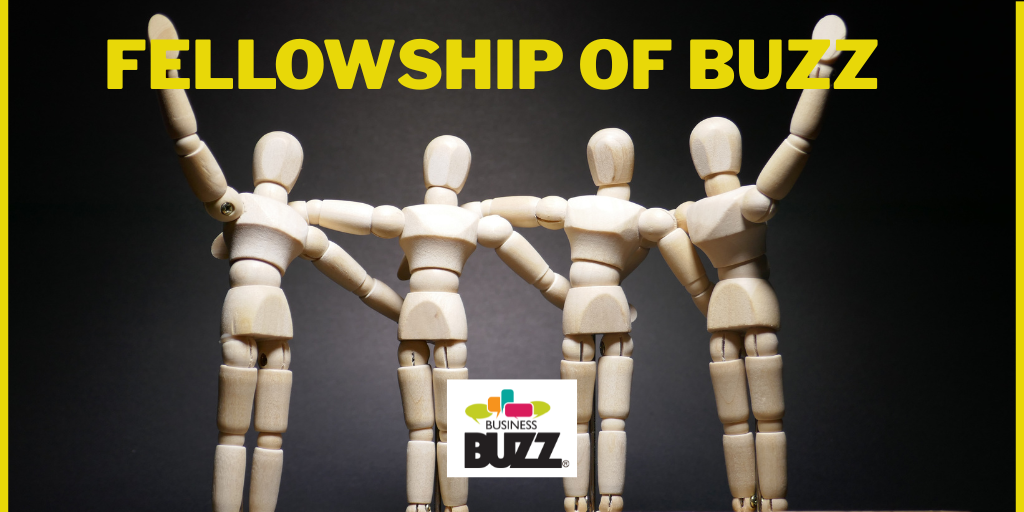Running a small business is tough. There’s no denying that.

Competition is fierce, customers can be unpredictable, & external factors like economic downturns or changing regulations can feel overwhelming. But while challenges are inevitable, the way a business owner responds, can make all the difference.
Some entrepreneurs fall into the trap of believing that every setback is the result of an external force working against them. They see competitors as thieves, customers as ungrateful, & circumstances as unfair. This mindset; the victim mentality, not only damages their reputation but also actively pushes customers, & partners away.
In this blog, we’ll explore how adopting a “woe is me” attitude can hurt your business, how others respond each time you play the victim card, & why gossiping about your struggles can backfire. We’ll also discuss the risks of confiding in the wrong people, especially clients who may not have your best interests at heart, & how misinterpreting competition can lead to poor business decisions.
What Is a Victim Mentality in Business?
A victim mentality is the belief that negative events are always the result of external forces beyond one’s control. While it’s true that some challenges are out of your hands, constantly blaming others for every problem will prevent your business & professional relationships from growing.
A small business owner with this mindset might complain about customers not being loyal, accuse competitors of stealing clients, blame suppliers or regulators & publicly vent frustrations about struggles, hoping for sympathy. Over time, this attitude erodes trust & credibility, making it harder to attract & retain customers, build meaningful business relationships, & grow sustainably.
Playing the victim regularly will most likely hurt your reputation & ultimately your sales. Your business’s reputation is one of its most valuable assets you have as a small business owner. But a adopting such a pessimistic mindset can quietly chip away at it. Here’s how:
Customers Lose Trust in You
Customers want to support businesses that are confident, capable, & solution-focused. If they sense desperation or constant complaints, they may start to feel uneasy. For instance, if a restaurant owner frequently posts online about how difficult it is to get customers to support local businesses, patrons might feel guilty at first. But eventually, they’ll tire of the negativity & opt for an alternative that appreciates their business rather than one that guilt-trips them.
Peers & Business Partners Distance Themselves
Other entrepreneurs can be valuable allies, but nobody wants to be around someone who regularly complains & makes unwarranted allegations. While they may sympathise at first, repeated negativity makes them hesitant to associate with you. If every meeting & networking event turns into a venting session about how unfair the business world is, people will start to avoid you. Successful business owners gravitate towards like-minded individuals, so as positive people move away from you, you’ll gradually be surrounded my other naysayers, who only intensify your feelings of discontent.
Negative Reviews Pile Up
Instead of addressing negative feedback constructively & embracing the opportunity this presence, a business owner with a trapped mindset might argue with reviewers, blame others or claim the feedback & the reviewer are being unfair or part of a smear campaign. This defensive approach will mostly only worsen the situation. Potential customers will see these interactions & decide to take their business elsewhere.
Sales Decline Due to a Lack of Innovation
Businesses that focus too much on external problems don’t spend enough time improving. While competitors are adapting, expanding their offerings, & enhancing customer service, victim-minded owners stay stuck in their grievances. Over time, this results in lost market share & dwindling sales. Customers naturally gravitate toward business people who are evolving & adapting rather than those that complain about unfair circumstances.
Have You Thought How Others Respond When You Play the Victim Card?
Every time a business owner leans into a victim mentality, the response from others diminishes. Here’s how it might typically plays out:

At first there is sympathy. People initially offer support, believing the business is experiencing a rough patch. Customers may try to be more understanding, & peers might provide encouragement. However, the second time, caution sets in. As complaints continue, people begin to grow wary. They start to wonder whether the issues are as severe as they seem & recognise repeat behaviour from the person complaining. By the third instance, many customers & business contacts start pulling away. They don’t want to be associated with negativity or feel pressured to provide ongoing emotional support. Lastly the business owner gains a reputation for being unprofessional, to work with or even unreliable. This perception can be difficult to reverse & can significantly impact future sales & opportunities not to mention potential partnerships
There is a significant danger when sharing & gossiping. Venting about business struggles might feel like a natural way to cope, but you tittle-tattling about woes especially in public settings can be incredibly damaging.
Be careful who you share with. Not everyone who listens has your best interests at heart. A client who seems like a friend may have their own agenda, using the information you share to their advantage. For instance, if a business owner confides in a client about financial difficulties, that client may later negotiate harder for discounts, sensing desperation.
Other business owners aren’t always the enemy. It’s easy to assume that a competitor who landed a client you wanted “stole” them. But in some cases, the potential client may have exaggerated their value to you while negotiating a better deal elsewhere. For example, a prospect might tell you they are considering your business to build leverage with another company. Meanwhile, you start seeing the other business as an enemy when, in reality, you were just part of the client’s strategy.
Jumping to conclusions & making unsubstantiated allegations can damage professional relationships & lead to unnecessary hostility. Instead of assuming the worst, focus on strengthening your own value proposition.
Negative talk attracts the wrong kind of consideration. Other business owners & customers may question your stability & hesitate to make long-term commitments. They may also wonder if you’ll one day talk about them in the same way. Nobody wants to be the next subject of your grievances.
Overreacting Damages Professional Relationships
When a business owner operates with a victim mindset, it becomes far too easy to misinterpret standard business practices as personal attacks. A simple pricing adjustment from a competitor, a neutral client decision, or a networking interaction can suddenly feel like a betrayal. Instead of assessing the situation logically, the victim mentality kicks in, leading to an emotional, reactionary response that can burn bridges & damage professional relationships.
The problem? These reactions are often based on assumptions rather than facts. When decisions are made from a place of defensiveness rather than strategic thinking, the consequences can be long-lasting, eroding trust & making it difficult to build a strong, supportive business network.
The victim mindset skews perception filtering every challenge through a lens of unfairness. Instead of seeing setbacks as part of the natural ebb & flow of business, every obstacle feels like proof that others are deliberately working against you.

Here are a few common ways this distorted perspective leads to overreaction:
Viewing standard business practices as personal attacks, so imagine a competing business runs a promotion that happens to lower their prices below yours. Instead of seeing this as a common marketing strategy, a victim-minded business owner might assume the competitor is specifically targeting them to steal their customers. The results might be that the slighted business owners starts publicly calling out the competitor on social media, or at networking. Therefore, appearing unprofessional. Rushing into an unsustainable discount war that hurts profit margins & damages future collaborations by turning a neutral business decision into personal drama & alienating another local business owner.
In reality, the competitor likely never even considered you when planning their promotion. They were simply making a strategic move to attract more customers, that was relevant to their business.
Be careful not to misinterpret a client’s decision as a betrayal. Not every client will stick with a business forever, & not every lost opportunity is due to external sabotage. However, when someone is stuck in a victim mentality, a client choosing another service provider can feel like a deep personal slight. Instead of taking the loss in your stride it is so easy to move to a scenario of undue confrontation that creates awkwardness, ensuring that the client never returns. Remember, existing clients & potential clients have the right to explore their options. It is not your choice but theirs.
Don’t assume innocent Interactions are malicious. In business networking, collaboration & information-sharing are common. However, a business owner with victim mentality can become overly suspicious, assuming that any question about their processes or pricing is an attempt to steal ideas or undercut them.
Knee-jerk reactions can cause unnecessary tension, pushing away valuable connections who might have had good intentions. Seeing the worst in others will bring out the worst in you.
Your Emotions Are Real, But That Doesn’t Make Them Reality for Others
We all know that running a business is an emotional experience. The highs of success can feel exhilarating, while setbacks can be deeply frustrating. When things don’t go as planned, whether it’s losing a client, facing competition, or dealing with unexpected challenges, it’s natural to have an emotional response. However, while your feelings are real & valid, that doesn’t mean they are relevant to or shared by the people around you.
A victim mentality can make it easy to believe that others are intentionally working against you when, in reality, they may not even be aware of your struggles. Overreacting to situations based purely on emotion doesn’t just harm your own mental well-being. Overreacting creates tension & discord. When emotions are running high, it’s easy to assume the worst about a situation. However, reacting impulsively, without verifying facts or considering alternative perspectives, often does more harm than good.
For example, imagine hearing from a customer that a competitor is “talking about your business.” If your first reaction is anger & you confront that competitor, you may later realise the comment was taken out of context or worse, was never said at all. By reacting before verifying, you create tension where none needed to exist.

In business, perception matters. If people see you as someone who jumps to conclusions & lashes out based on hearsay, they will be less inclined to engage with you. Even when you’re genuinely upset, handling situations with professionalism & composure will always serve you better than a knee-jerk reaction
Hearsay Is not the basis for challenging another business owner. One of the most dangerous aspects of a victim mentality is the tendency to rely on hearsay rather than hard facts. When you’re already feeling defensive or undervalued, it’s easy to latch onto gossip that reinforces your fears, whether or not it’s true.
Acting on rumours rather than verified information can have serious consequences. Challenging another business owner based on hearsay can make you look irrational or overly aggressive. Accusing a competitor of unethical behaviour without real proof can backfire & make you seem untrustworthy. Publicly airing grievances based on incomplete information can hurt your credibility.
Before reacting to something you’ve heard, ask yourself, “do I have actual evidence to support this claim? Is this information coming from a reliable, unbiased source? Have I spoken to the potential perpetrator directly to clarify the situation?” If the answer to any of these questions is “no,” it’s best to pause & gather more information before responding.
It’s okay to feel frustrated, disappointed, or even angry when something unfair happens in business. However, letting emotions dictate your actions especially when you don’t have concrete facts can do more harm than good. Be aggrieved only when there are hard facts.
If you truly believe another business has wronged you, take a methodical approach before reacting.
Did That Client Go Elsewhere? No?
One of the most common traps of a victim mentality in business is assuming that competition is unethical or malicious. If a potential client has spoken to a competitor but ultimately chooses to stay with you, then no “stealing” occurred. There is no business owner on business owner crime here.
Business is a marketplace, not a closed system. Clients will naturally explore options, compare services, & negotiate for the best deal. That’s not betrayal; that’s just how business works.

Clients often speak to multiple providers to gain leverage in negotiations. They might mention a competitor’s price or service to encourage you to offer a better deal. This doesn’t mean they ever intended to go elsewhere. It’s a strategy. Instead of viewing these situations as attacks, use them as learning opportunities. Ask yourself: What made the client consider another provider? Was it pricing, service, or reputation? Rather than reacting emotionally, focus on strengthening your unique value proposition.
A business owner with a victim mentality might see competition as a threat, while a successful entrepreneur sees it as motivation to improve. If a client chooses another business, it’s not because they were “stolen”, it’s because they found a better fit. Instead of blaming others, analyse, adapt, & ensure that next time, you’re the clear choice.
A competitor will chase an open opportunity. That’s just business. If a potential client shares their plans with a competitor, you have to expect that the other business owner will pursue that opportunity. That’s not underhanded. it’s just how business works. Until the client explicitly shuts down the conversation or makes a firm commitment to you, they are fair game. The truth is that no business owner is going to ignore a potential lead simply because you spoke to them first. Just as you would follow up on an interested prospect, your competitor will do the same. It is not one rule for you & another rule for everyone else. Competitiveness isn’t personal; it’s the nature of the market & being a small business owner.
Focus on what you can control, your value, your pitch, & your relationship with the client. If they ultimately choose your competitor, don’t blame them for chasing the opportunity. Ask yourself: Did I do enough to secure the deal? Adapt, improve, & win the next one.
How Do You Pivot From Victim to Victor
Breaking free from a victim mentality takes effort, but it’s entirely possible. Here are some ways you might change your mindset:
Identify the problem. This is probably the hardest step. Stop, take stock & look at how you react to circumstances. Do you encounter circumstances, that most other business owners rarely see happen to them on a regular basis? This tells you that you are looking for the problems all the time, so therefore you see them at every turn.

Ask yourself. What can I do to make a difference in my business for the better? Acknowledge that things will not always go the way you want. The best approach is to focus on solutions, not problems. Instead of saying, “It’s unfair that my competitors are getting more clients,” ask yourself, “What can I do to make my business more appealing?”
Park your emotions. Before you stride out into making allegations allow the emotional dust to settle. Consider if you have actually seen what is claimed to have happened first hand. Anything else will become one-persons word against another. That’s not enough to accuse another business owner of acting in an unprofessional manner. If you have been sharing your unhappiness about the business world, other people will know your triggers & will push those buttons for their own advantage. That might be pure jealousy or dislike on their part or to gain an advantage.
Choose your words wisely. Be mindful of how you talk about your business. Try & develop a positive spin even in the worse scenarios. This will minimise the emotional impact when stuff goes wrong, not to your plan or a hot lead goes elsewhere. Likewise seek out business owners who focus on positive solutions rather than complaints. Their mindset will inspire you to think differently & to act.
Protect your business reputation. Your words shape how others perceive your business. Be cautious about who you confide in, avoid gossiping for the sake of gossiping, & focus on building a strong, resilient brand.
Final Thoughts
Success in business is not about avoiding challenges. It’s about how you respond to them. While it’s easy to fall into a victim mentality, doing so damages your reputation, pushes people away, & stunts growth.
Breaking the victim cycle requires intent. By shifting from blame to action, maintaining professionalism, & being mindful of who you confide in, you can turn setbacks into stepping stones toward success.

The most successful entrepreneurs aren’t the ones who never face difficulties; they’re the ones who refuse to let a victim mindset define them. A business built on logic, professionalism, & strategy will always be stronger than one driven by defensiveness, emotions & assumptions. Instead of assuming the worst, successful entrepreneurs seek understanding, focus on solutions, & choose their responses wisely.
Now you have read this article, I hope you are inspired?
Take the time to inspire others by sharing it to your favourite social media solution.
It's easy just click on the icon below to share.











